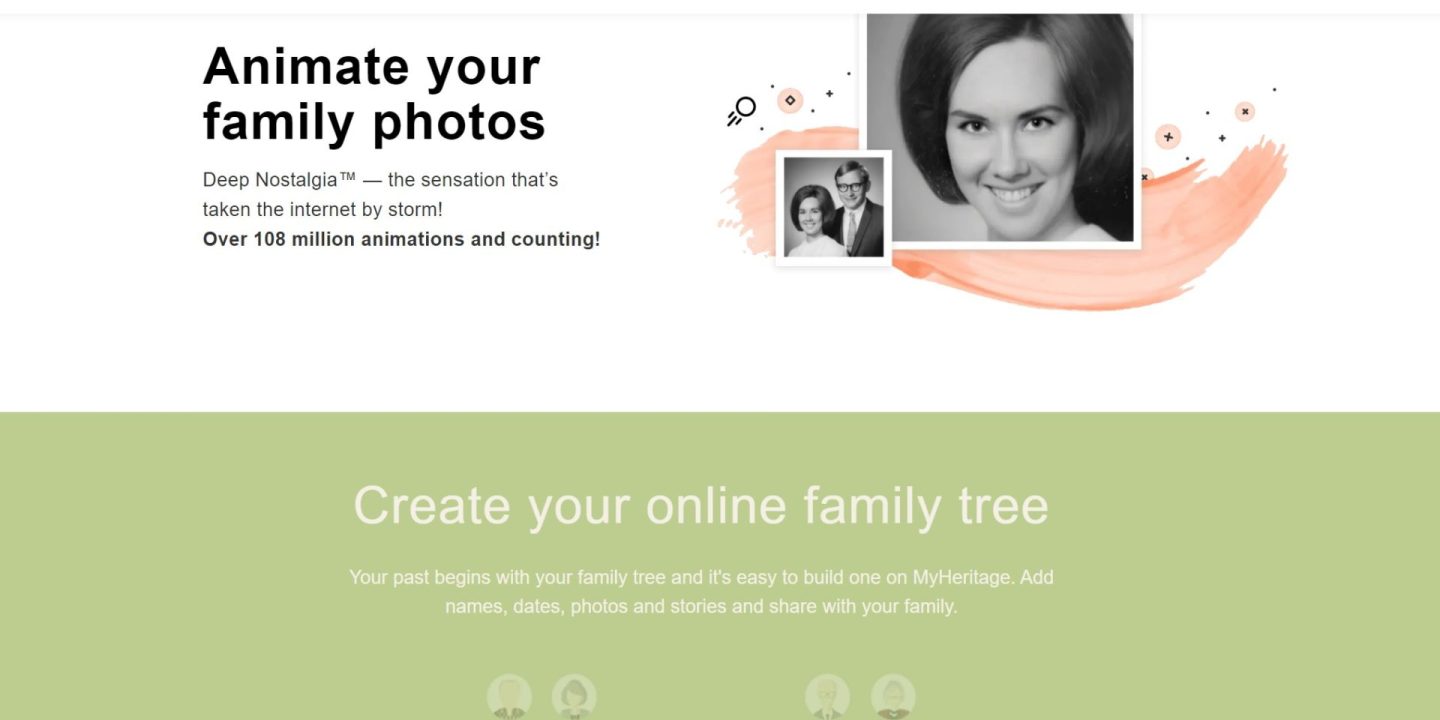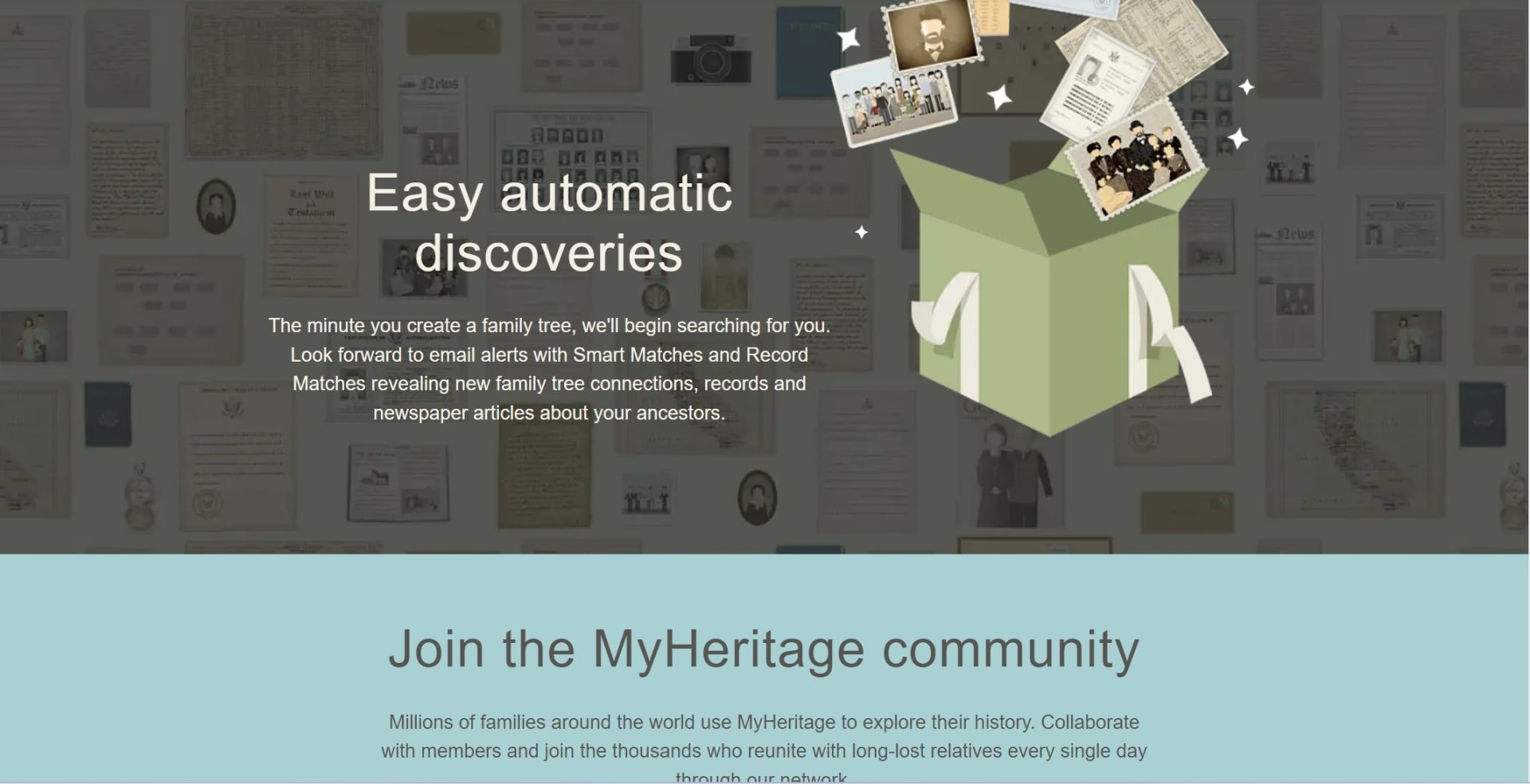
Have you ever wondered where your family came from? Do you want to discover more about your roots and connect with long-lost relatives? If so, MyHeritage may be just what you need! This powerful DNA testing service can help unlock the secrets of your ancestry and provide valuable insights into your family history. In this blog post, we’ll explore the benefits (and drawbacks) of DNA testing with MyHeritage, as well as show you how to get started on this exciting journey of self-discovery. So grab a cup of coffee and let’s dive in!
What is MyHeritage?
MyHeritage is an online platform that provides DNA testing services, genealogical research tools and access to a vast global database of family trees. This powerful tool enables people from all around the world to unravel their ancestry, explore their heritage and connect with long-lost relatives.
The company was founded in 2003 by Gilad Japhet, who wanted to help people discover more about their roots and connect with their families. Since then, MyHeritage has grown into one of the largest DNA testing companies in the world, with over 100 million users and a massive collection of historical records.
One unique feature of MyHeritage is its ability to match your DNA data against others in the system. This can reveal potential matches between you and distant relatives across different parts of the globe!
Another exciting aspect of MyHeritage is its advanced technology for analyzing your DNA results. The service not only tells you where your ancestors came from but also identifies specific ethnicities based on genetic markers found within your DNA.
MyHeritage offers a comprehensive solution for those looking to discover more about their family history through cutting-edge genetic testing technology combined with extensive genealogical records databases.
How does DNA testing work?
DNA testing is a process that involves analyzing your DNA sample to determine your ancestry and genealogy. The test works by examining specific markers on your DNA, which can provide important clues about your family history.
The test usually involves collecting a small sample of saliva or blood, which is then sent to the laboratory for analysis. There are different types of tests available depending on what you want to learn about yourself, such as ethnicity estimates or genetic matches with other individuals.
Once the lab receives your DNA sample, they extract the genetic material from it and analyze specific regions of the genome using high-tech equipment. These regions contain unique patterns that can be used to identify certain ancestral populations or relatives who share similar DNA.
DNA testing has become increasingly popular in recent years due to its ability to uncover interesting information about our pasts and connect us with long-lost relatives. However, it’s important to remember that not all tests are created equal – some may be more accurate than others depending on their methodology and technology used.
In summary, DNA testing offers an exciting opportunity for individuals curious about their roots but should always be used alongside traditional genealogical research for maximum accuracy and insight into one’s heritage.
The benefits of DNA testing
DNA testing has revolutionized the way we uncover our family history. One of the most significant benefits of DNA testing is its ability to provide us with an accurate picture of our ancestry and ethnic origins. By analyzing your DNA, MyHeritage can determine which regions around the world your ancestors came from.
Another benefit is that it can help you connect with long-lost relatives. With millions of people taking DNA tests, there’s a good chance that you might find a close relative who shares some genetic material with you. This connection could lead to discovering fascinating stories about your family history or even meeting someone new for the first time.
DNA testing can also help solve mysteries surrounding adoption or unknown parentage. By comparing your sample against others in databases like MyHeritage, it may be possible to identify biological parents or siblings previously unknown.
For those interested in learning more about their health risks and predispositions, DNA testing can offer valuable insight into potential medical conditions and diseases that run in the family.
By gaining knowledge about one’s past through DNA analysis, individuals will gain an enhanced sense of identity and belonging as they discover the rich tapestry woven by their unique ancestral background.
The drawbacks of DNA testing.
While DNA testing has many benefits, there are also drawbacks to consider before embarking on this journey. One of the main concerns is privacy. When submitting your DNA sample, you are essentially giving away personal information that can be used in ways you may not anticipate or agree with.
Another concern is accuracy. While modern technology has improved the accuracy of DNA testing, it is not foolproof and errors can occur. This means that results should always be treated as an indication rather than a definitive answer.
Cost is also a factor to consider when thinking about DNA testing. It can be pricey and some people may not have the financial resources to invest in such an endeavor.
Emotional considerations must also be taken into account. Discovering unexpected family secrets or connections may have unintended consequences on relationships and mental health.
While DNA testing has its drawbacks, it still provides valuable insights into one’s ancestry and heritage when approached with caution and careful consideration of these potential downsides.
How to get started with MyHeritage
Getting started with MyHeritage is easy and straightforward. First, create an account on the website using your email address or social media profile. From there, you can choose to purchase a DNA testing kit or just explore the site’s features.
If you decide to take a DNA test, simply order the kit online and wait for it to arrive in the mail. Once you receive it, follow the instructions carefully and send back your sample in the provided package.
Once your results are ready, you can access them on MyHeritage’s website or mobile app. The results will include information about your ethnicity estimate as well as potential matches with other users who share similar DNA.
Aside from DNA testing, MyHeritage also offers various genealogy tools such as family tree building and historical record searches. These features allow you to uncover more information about your ancestry beyond what is revealed through DNA alone.
Getting started with MyHeritage only takes a few simple steps and opens up a world of possibilities for exploring your family history.
Conclusion.
MyHeritage is a valuable tool for anyone looking to discover their roots and learn more about their ancestry. With the power of DNA testing, MyHeritage can help you uncover your family’s history and connect with other relatives around the world.
While there are some drawbacks to consider before taking a DNA test, such as privacy concerns or unexpected results, the benefits of learning more about your family history far outweigh any potential risks.
Getting started with MyHeritage is easy and straightforward. Simply order a DNA testing kit online, provide a sample of your saliva, and wait for your results to come in. From there, you’ll be able to explore your heritage in greater detail than ever before.
So what are you waiting for? Start exploring your family’s past today with MyHeritage!










